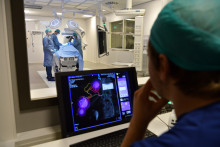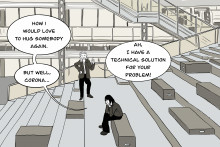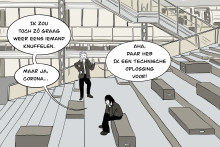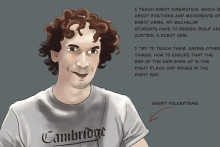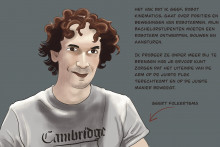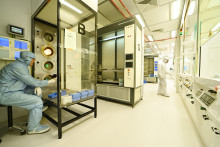dih-hero
DIH-HERO (Digital Innovation Hubs in Healthcare Robotics) is a Horizon2020 project involving 17 partners in ten pan-European countries, with the UT as the coordinator. It is focused on accelerating innovation and implementation of robotics applications for healthcare. Within the UT, the Robotics and Mechatronics group, the TechMed Center and the Digital Society Institute are involved in the initiative. Françoise Siepel, healthcare robotics expert from the Robotics and Mechatronics group (RAM), has a coordinating role within DIH-HERO on behalf of the University of Twente.
DIH-HERO is aimed at faster innovations in healthcare robotics. What is the end goal of the initiative?
Siepel: ‘The main objective is building a sustainable network for healthcare robotics. We are creating a platform that should serve as the central point in Europe which offers several services, such as matchmaking and serves as the knowledge database in the healthcare robotics sector. At the moment, the sector is still fragmented. For example if you have a prototype in one country and do not have the facilities for testing, it can be a challenge to bring the product to the market. We’d like to make collaboration easier and therefore accelerate innovation.’
The project received an investment of € 16 million in 2018. Why was it awarded additional 3.5 million euros recently?
‘Half of our budget is distributed via open calls to support SMEs and companies across Europe. They can submit an application containing a robotic solution implemented in the clinical environment. When the coronavirus situation occurred last year the consortium organized a special Covid-19 call. We allocated one million euros to applications offering solutions to the Covid-19 situation, such as robots for disinfection, vaccination robots, robots that can reduce the number of interactions in hospital settings. Because we already had an established network, we were able to act fast – in one week we received about 146 applications. We funded ten projects that we assisted via innovation coaching. The special call raised awareness and showed how the technology can be helpful in such situations. Therefore, we are grateful that the European Commission considered us as the network which can boost healthcare robotics and awarded us the top-up budget, which is very special.’
What type of healthcare robotics does DIH-HERO focus on?
‘We cover mainly five application domains: Diagnostic robotics, interventional robotics like surgical robots, rehabilitation robotics such as wearable exoskeletons, but also robotics supporting patients and healthcare professionals, which can include ergonomical robots and telepresence robots, for instance. Robotics can help physicians to work with patients from distance, even performing surgeries from a different location. There are still a lot of challenges to overcome to perform this on a larger scale, but this is where the future could be heading.’
What impact do you hope the project will have?
‘To answer that I have to think of a quote by Astley Paston Cooper (1768-1841): "A good surgeon must have an eagle's eye, a lion's heart and the hands of a lady." The requirements on skills of physicians are rising steadily. Therefore there is a need for innovative solutions supporting the healthcare professionals and integrate more intelligence into the systems that are used. This enables physicians to focus more on the patient as a human being, while advanced technology provides necessary precision and support. I think robots could really help with that.’


